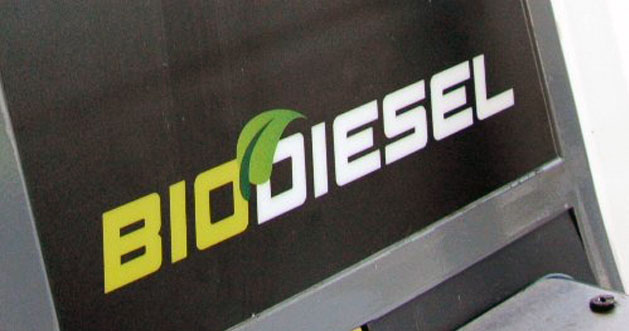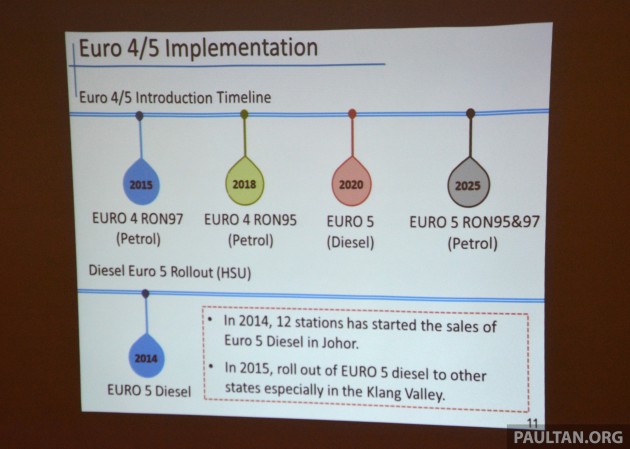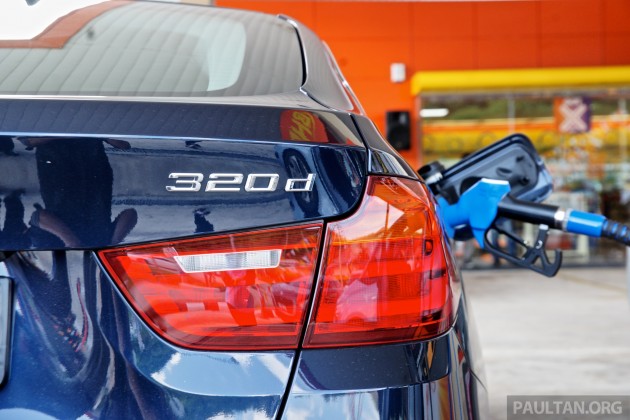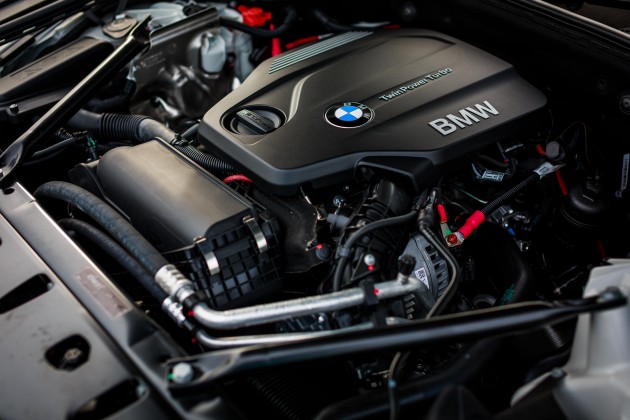![2015-f10-bmw-520d-sport-interior-038]()
BMW Group Malaysia has issued a response to the reported implementation of B10 biodiesel by October – essentially, it says its tests worldwide have found “technical challenges” running the 10% palm-based biodiesel/90% petroleum diesel blend in engines.
According to MD and CEO Alan Harris, testing has found that fatty-acid methyl ester (FAME), which boils at high temperatures, will move into the motor oil, causing it to thin and possibly leading to oil sludge. This reduces lubricity and increases the risk of engine damage.
Other issues cited include formation of injector deposits, injection invariance, reduced idling cycle stability and higher levels of water in the fuel, the latter causing component corrosion.
Current modern diesel engines are suited to run on B7 biodiesel, Harris said, also asking the Plantation Industries and Commodities ministry (MPIC) to consider the feedback and opinion of the Malaysian auto industry before implementing B10 biodiesel.
Statement by BMW Group Malaysia MD and CEO Alan Harris, dated June 8, 2015
In response to Datuk Amar Douglas Uggah Embas, Minister of Plantations Industries and Commodities on the implementation of B10 Biodiesel by the month of October 2015, we at BMW Group Malaysia would like to state that the Ministry of Plantations Industries and Commodities should also take into account the feedback and opinion of the Malaysian Automotive Industry before implementing the use of B10 biodiesel.
In our tests with B10 Biodiesel worldwide, we have found technical challenges present when blending 10% of palm based methyl ester with the current conventional fuel.
Testing on vehicles have found that Fatty-Acid Methyl Ester (FAME), which boils at high temperatures will move into the motor oil due to the regeneration setting resulting in thinning of the motor oil as it does not evaporate when the engine runs at high temperatures. This in turn leads to oil sludge, reduced lubricity with the risk of severe engine damage.
![filter-bmw]()
Further to this, in our testing, we have also found the formation of deposit films at the injector due to the lack of compatibility of additives with FAME. Polymer linings at the injector results in the invariance of the injection, as well as reduces the stability of the idling cycle, creating negative emissions and changes the engine acoustics.
![figure2-bmw]()
B10 biodiesel also results in higher levels of water in the fuel, which leads to corrosion of the components, which transport the fuel and promotes oxidation in the tank which causes a blocked fuel filter.
The current modern diesel engines in Malaysia are well suited to run on the B7 levels of biodiesel, however, while biodiesel is introduced with the intention of promoting the use of clean and green technology as well as to increase the domestic use of palm products in the country, we must ensure that the technology is safe and proven to also benefit the industrial and the automotive sector.
The post B10 biodiesel not good for engines – BMW Malaysia appeared first on Paul Tan's Automotive News.






 Both powerplants are better than those in the Fiesta Classic, in line with Ford’s positioning. The older car makes do with a 101 PS 1.6 Duratec petrol and a 68 PS/160 Nm 1.4L diesel unit.
Both powerplants are better than those in the Fiesta Classic, in line with Ford’s positioning. The older car makes do with a 101 PS 1.6 Duratec petrol and a 68 PS/160 Nm 1.4L diesel unit.  Diesel drivers have been enjoying their RM1.80 per litre of subsidised diesel that
Diesel drivers have been enjoying their RM1.80 per litre of subsidised diesel that 
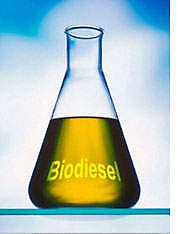




 It was supposed to be 2012, but it looks like we won’t be getting Euro 4 or Euro 5 grade diesel next year after all. This is because the government has given petroleum companies a two-year extension to the original deadline to offer better quality fuel. They now have until 2014 to roll out Euro 4 fuel.
It was supposed to be 2012, but it looks like we won’t be getting Euro 4 or Euro 5 grade diesel next year after all. This is because the government has given petroleum companies a two-year extension to the original deadline to offer better quality fuel. They now have until 2014 to roll out Euro 4 fuel. 


































